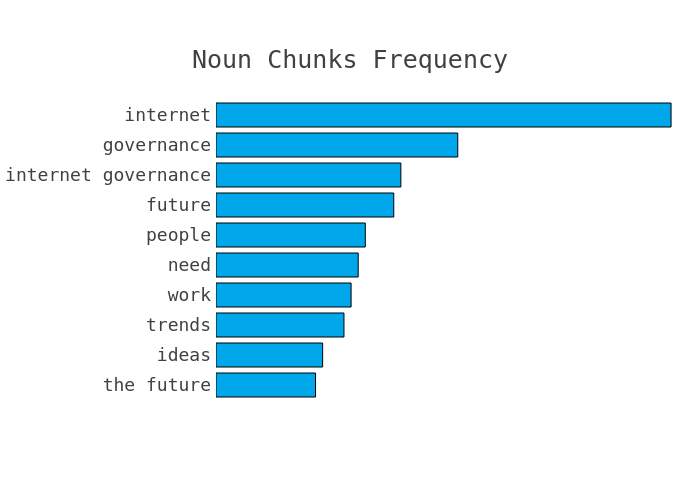Imagining the future of international internet governance
8 Dec 2021 15:50h - 17:20h
Event report
The workshop aimed to collect inputs from the audience and shared the results of a series of regional multistakeholder conversations in Asia, Latin America, and Africa that would allow to build the run-up to WSIS+20 process.Ms Anriette Esterhuysen (MAG Chair) presented a general overview of developments in the internet governance from the past. She compared it to the debates on global finance governance and said that the emergence of IG agenda was a chance to reshape global governance and in a bottom-up way. Esterhuysen named the main issues which are on the IG table: interests of states, cybersecurity, platform governance, sovereignty, etc. ‘I think we don’t have inclusive internet governance yet. And I think that is definitely something that we need to think about how to do it’, she concluded.
Ms Paula Martins (APC) mentioned the multiplication of the IG process internationally and regionally, as well as numerous drafts that need to be addressed and commented that they may have a huge impact on the human rights and society in general. ‘We need an opportunity to turn off the reactive mode, allowing us to be more proactive and to be more strategic in shaping internet governance’, she added. Martins described the design of the regional workshops mentioned above that were aimed at imagining the global Internet governance we would like to have in ten years from now.
Co-organizers of regional workshops briefly presented the main insights that were taken as a basis to define the key trends for today.
Ms Jamila Venturini (Derechos Digitales) spoke for Latin America: gender equality, the pandemic increased divides, increased surveillance and state control, the role of global corporations in trade and virtual realities, fragmentation of Internet infrastructure.
Mr Barrack Otieno (Kictanet) for Africa: access remains a major area of concern; digital literacy, participation of governments in the Internet governance arena.
Ms Jennifer Chung (Dot.Asia) for Asia-Pacific: cost of access; strong connections between the IG and the political system of states that which are becoming less democratic in the region; internet shutdowns; environmental sustainability; multilingual Internet.
Ms Roxana Bassi (APC) resented a video which summarized the trends from regional workshops and built several scenarios for the future IG. Bassi suggested that participants do an online collective brainstorming on a particular scenario, based on the following trends:
- The IGF is captured by bureaucracy and politics
- Number of devices connected is ten times more than humans, changing the priorities of internet governance – governance focus not on people and their rights, but on securing interoperability and interconnection among devices
- The use of deepfake proliferates, blurring the line between fiction and reality further, without the concrete standards agreed on how to tackle disinformation
- Internet shutdowns become the norm in the presence of political tension, facilitated by internet fragmentation, lack of international norms, and unaccountable connivance by tech companies
- New models of data stewardship, collaboratives, and trusts are the norm for governing and benefiting from large data repositories as a counterbalance to the current extractive models
- The lack of trust and failure to agree have given origin to a fragmented semi-connected network, that varies depending on national boundaries or private gatekeeping = fragmented internets/splinternet
- Internet users are monitored online 24/7 by state actors
- More people working from home remotely than those who are physically present in their work environments, while new labour laws and practices are in place to protect the rights of such remote workers
- Due to the lack of consensus to regulate it internationally, cybersecurity threat becomes too sophisticated to be fully mitigated against, and everyone becomes vulnerable to attacks
- The Government board focused on human rights based protocols for internet; international norms for cyberspace; a call for better connection between regional and global processes; all for better coordination among different state agencies dealing with digital issues.
- The Tech board emphasized AI tech; use of VPNs; the need for states to abide to cybernorms; default HTTPS; the promotion of hyperlocal root zone; the need for stakeholders to understand and respect the work of the technical community better.
- The Civil society board: advocating for a more human right-based Internet space; capacity building; ban on surveillance; the issue of anonymous usage of the Internet; the responsibility of Big Tech.
- The Private sector board: positive attitude toward governance; sand boxes as a norm-making tool; SMEs support for participation in discussions; consistency between public policy and national objectives.
By Ilona Stadnik
Session in numbers and graphs




Automated summary
Diplo’s AI Lab experiments with automated summaries generated from the IGF sessions. They will complement our traditional reporting. Please let us know if you would like to learn more about this experiment at ai@diplomacy.edu. The automated summary of this session can be found at this link.Related topics
Related event

Internet Governance Forum (IGF) 2021
6 Dec 2021 10:00h - 10 Dec 2021 18:00h
Katowice, Poland and Online
